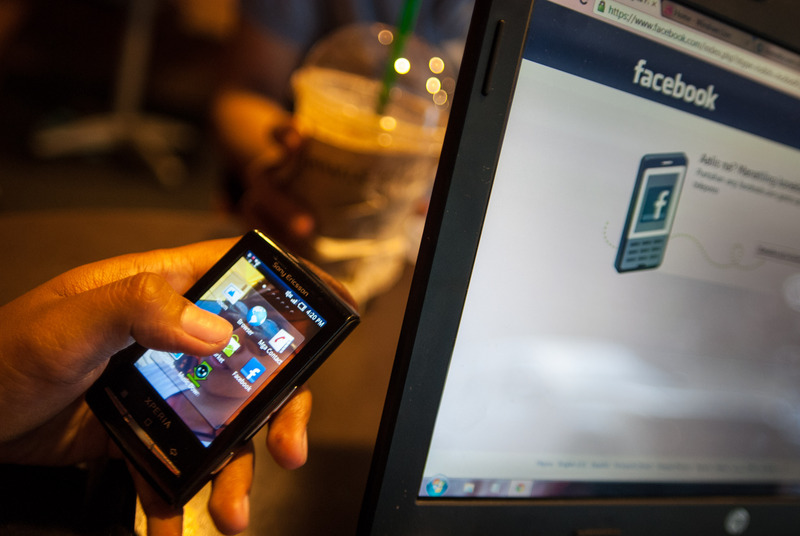21 Nov 2013 | News and features
A Kuwaiti man has been sentenced to five years in prison for a Twitter comment reportedly insulting the prophet Muhammad.
Musab Shamsah was arrested by local police in May for posting on his Twitter account that Hassan and Hussein, the sons of Muhammad’s cousin, Ali, were more honest than Muhammad himself. He received a sentence of one-year imprisonment for mocking religion under article 11 of the penal code, and an extra four years for violating the 2012 National Unity Law for publishing content that could be deemed offensive to religious “sects” or groups.
Shamsah pleaded not guilty to all charges during his hearing on 18 November at the Kuwaiti Court of First Instance, arguing that his tweet had been misinterpreted by prosecutors. The tweet was deleted 10 minutes after it was published, with Shamsah following it up with two clarifying messages.
Human Rights Watch has condemned the sentence imposed on Shamsah, imploring that Kuwaiti prosecutors should stop detaining people for their peaceful expression of religious, political, or other views.
“It’s an insult to all Kuwaitis for the government to give itself the authority to decide what’s insulting to religion, and to jail Kuwaitis for it,” said Sarah Leah Whitson, Middle East director at Human Rights Watch. “Let each Kuwaiti decide what he or she finds insulting, and as simple as clicking ‘unfollow,’ decide whether they want to see or hear a message.”
Shamsah’s lawyer will file for an appeal on 20 November.
Eerlier this week as an Emirati activist was handed down a two-year jail sentence for tweeting.
This article was originally posted on 21 Nov 2013 at indexoncensorship.org
18 Nov 2013 | Middle East and North Africa, News and features, United Arab Emirates

Waleed al-Shehhi (Image @uae_detainees)
Waleed al-Shehhi, an activist from the United Arab Emirates, was today sentenced to two years in prison and fined 500,000 Dirhams (£84,500) for tweeting about the trial of a group of human rights defenders known as the “UEA 94”.
The 94 activists, many of which were arrested in September 2012, were charged in January for “seeking to seize power.” Al-Shehhi tweeted about the authorities failure to investigate alleged torture against political prisoners, and called for the release of activists he believed had been detained for taking part in the pro-democracy movement.
Al-Shehhi, who was arrested on 11 May 2012, was sentenced on Articles 28 and 29 of the Cybercrimes Decree. This bans the use of information technology to “endanger state security” and “harm the reputation of the state.”
“Authorities are using the veil of national security to target peaceful political activists and it is having a chilling effect on free speech in the country,” Rori Donaghy, Director of the Emirates Centre for Human Rights said in a statement.
This article was originally published on 18 Nov 2013 at indexoncensorship.org
14 Nov 2013 | Events, United Kingdom
In light of the recently passed Californian law allowing minors to delete any of their online activity, Index organised a Google Hangout in association with student newspapers York Vision and The Student Journals, on whether young people should have the right to be forgotten on social media.
Watch the discussion between York Vision editor Patrick Greenfield, Student Journals editor Amy Ashenden and Index’ Alice Kirkland and Milana Knezevic below.
What do you think? Have your say in the comments or tweet us at @IndexCensorship.
27 Sep 2013 | Comment, Digital Freedom, News and features

Californian legislators have come up with a plan that would help teenagers delete their online presence, or at least the parts that are held by social media sites.
It’s an incredibly tempting notion: as the Independent’s Grace Dent points wrote this week:
If only I could have rounded up my past in binliner at 18 and set it alight. All those love letters, declaring undying love now sitting in the lofts of boys I can’t remember the names of, the missing diaries, the angry letters sent to the NME, some petulant letters sent to Mars Inc. about the Marathon to Snickers name change. How lovely if aged 18, following a short button pressing ceremony I was officially no longer a twerp.”
Dent is writing about a teenage past pretty much pre-Internet, never mind pre-smartphone with 8 megapixel camera. I’m of the same vintage. There’s really very, very little of young me out there. Thank God.
It is different of course for teens today, who innocently post vast amounts of information about themselves online. We’re beginning to see the repercussions of that. Cast your mind back to earlier this year and the case of 17-year-old Paris Brown, the recently elected youth police and crime commissioner for Kent, who lost her salaried job after someone dug up a few stupid things she’d posted on Twitter a few years previously. It’s depressing that people can be so unforgiving of children.
Much worse, Texan teenager Justin Carter could face jail after being charged with making “terroristic threats” during a Facebook argument about a video game.
Could an erase button solve any of this? I’m not sure. It is possible to get rid of one’s Facebook and Twitter accounts already, but will it be possible to erase all the mentions? The tagged photos and endless other footprints left online? I’m not so sure.
Moreover, I don’t know if it’s a really positive idea. If the web is to be part of everyday life, which we seem to want to encourage, then how does this initiative, essentially creating two different lifetimes, work?
At an Index on Censorship discussion on young people’s free speech online last Monday, an interesting idea emerged: should the joys and dangers of social media be taught in school? Like sexual education is taught? Social media, like sex, is part of life and people should be taught about it sensibly. The worry with a button that effectively erases one’s adolescence is that it may mean we avoid talking about positive social media use for teens in the first place.
On top of all this is broader society. Should we not be a little more forgiving of young people’s indiscretions? A little less judgmental?
We should be able to to delete information we’ve put online about ourselves, absolutely. But we should also be creating an atmosphere where young people don’t feel the need to take the nuclear option and erase years of thoughts, ideas and memories.
This article was originally published on 27 Sept 2013 at indexoncensorship.org


